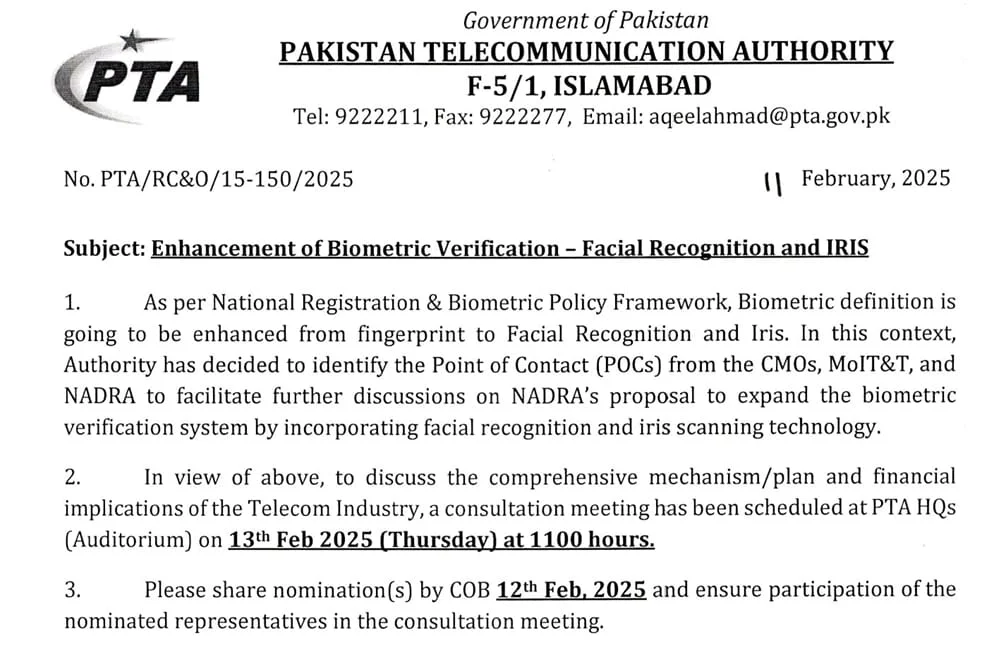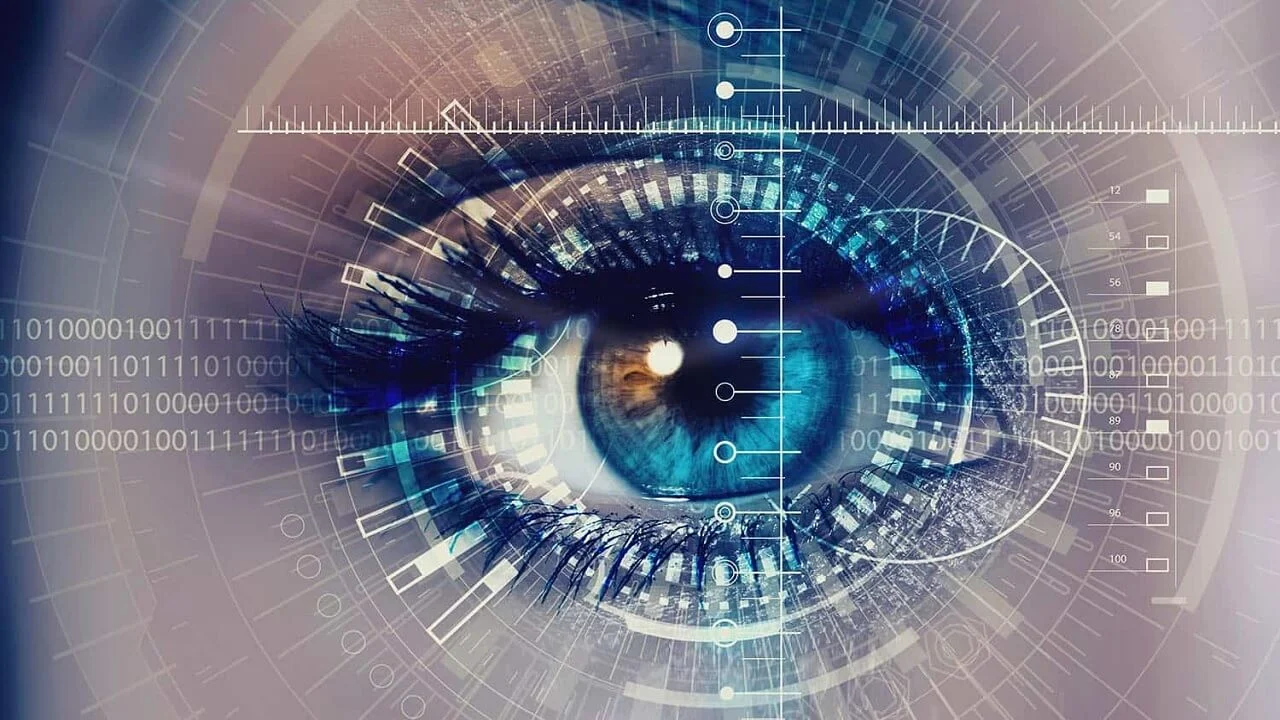The Pakistan Telecommunication Authority (PTA) has revealed its intentions to enhance the nation’s biometric verification system by integrating facial recognition and iris scanning technologies. This initiative aligns with the National Registration & Biometric Policy Framework and seeks to improve security protocols beyond the current fingerprint-based system.
PTA to Enhance Biometric Verification
The PTA has scheduled a consultation meeting at its headquarters in Islamabad on February 13, 2025, at 11:00 a.m. To discuss the implementation mechanism, financial implications, and industry impact, stakeholders, including representatives from Cellular Mobile Operators (CMOs), the Ministry of IT & Telecom (MoITT), and NADRA, have been invited to participate. Nominations for attendees were requested to be submitted by February 12, 2025.

The Importance of Enhancing Biometric Verification in Pakistan
Pakistan has depended on biometric verification for numerous years, predominantly utilizing fingerprint authentication for registering SIM cards, financial transactions, and national identity verification via NADRA (National Database and Registration Authority). Nevertheless, the increasing prevalence of security threats, identity fraud, and cyber risks has highlighted the necessity for more sophisticated and reliable identification methods. Technologies such as facial recognition and iris scanning provide superior accuracy, security, and user-friendliness compared to conventional fingerprint verification.
Many countries worldwide have implemented multi-factor biometric authentication to enhance security in banking, telecommunications, and government services. Pakistan’s initiative is following global best practices in biometric authentication.
Future Impact of Facial and Iris Recognition
The implementation of facial recognition and iris scanning for biometric verification in Pakistan will bring improvements in security, digital transactions, and identity management. By increasing the accuracy and reliability of biometric authentication, this technology will play a vital role in identity fraud, SIM-related scams, and unauthorized access to sensitive services. In contrast to fingerprint-based systems, which may occasionally fail due to the degradation of fingerprints, facial and iris recognition provides a more resilient and reliable alternative.
Moreover, this transition will enhance security while facilitating smoother digital transactions and e-governance by allowing for effortless identity verification. Citizens will enjoy greater convenience in accessing financial services, registering SIM cards, and utilizing government platforms without the necessity of physical presence. This development aligns Pakistan with global advancements in digital authentication, moving the nation closer to international benchmarks in cybersecurity and fraud prevention.
However, this technological progress also brings forth concerns regarding data privacy and the potential for misuse. It will be essential to ensure the protection of biometric data through strict regulations, encryption, and controlled access will be crucial to gain public trust. Additionally, telecom operators and financial institutions may need to invest in new infrastructure to accommodate these sophisticated authentication methods, which could pose initial financial challenges.
Our Thoughts
Pakistan’s initiative to enhance biometric verification via facial recognition and iris scanning represents a significant advancement in security, fraud prevention, and digital evolution. However, effective execution will require collaboration among stakeholders, privacy safeguards, and investment in infrastructure. The upcoming consultation meeting will play a crucial role in shaping the future of biometric verification in Pakistan’s telecom and digital ecosystem.
For more daily updates, please visit our News Section.

